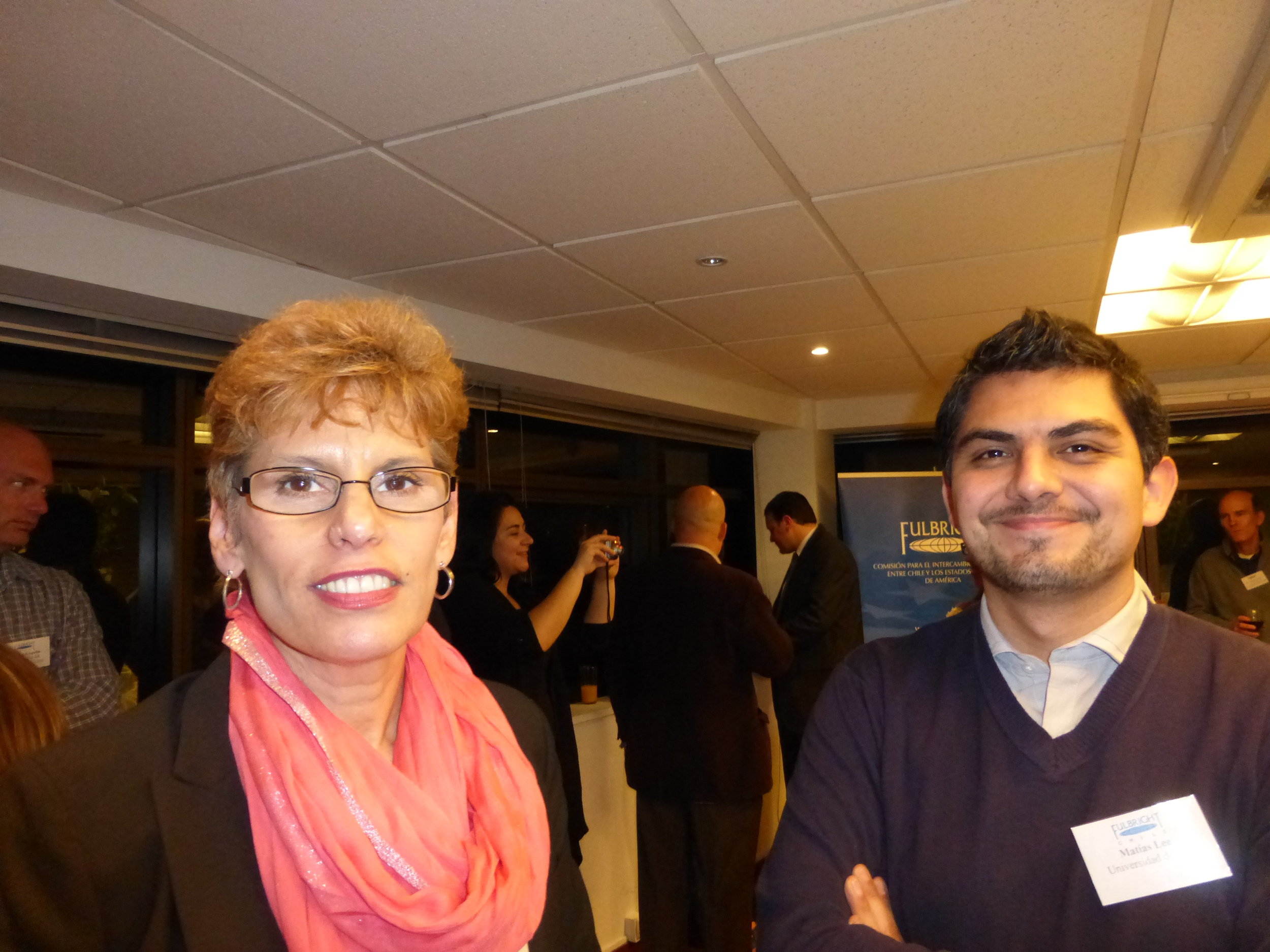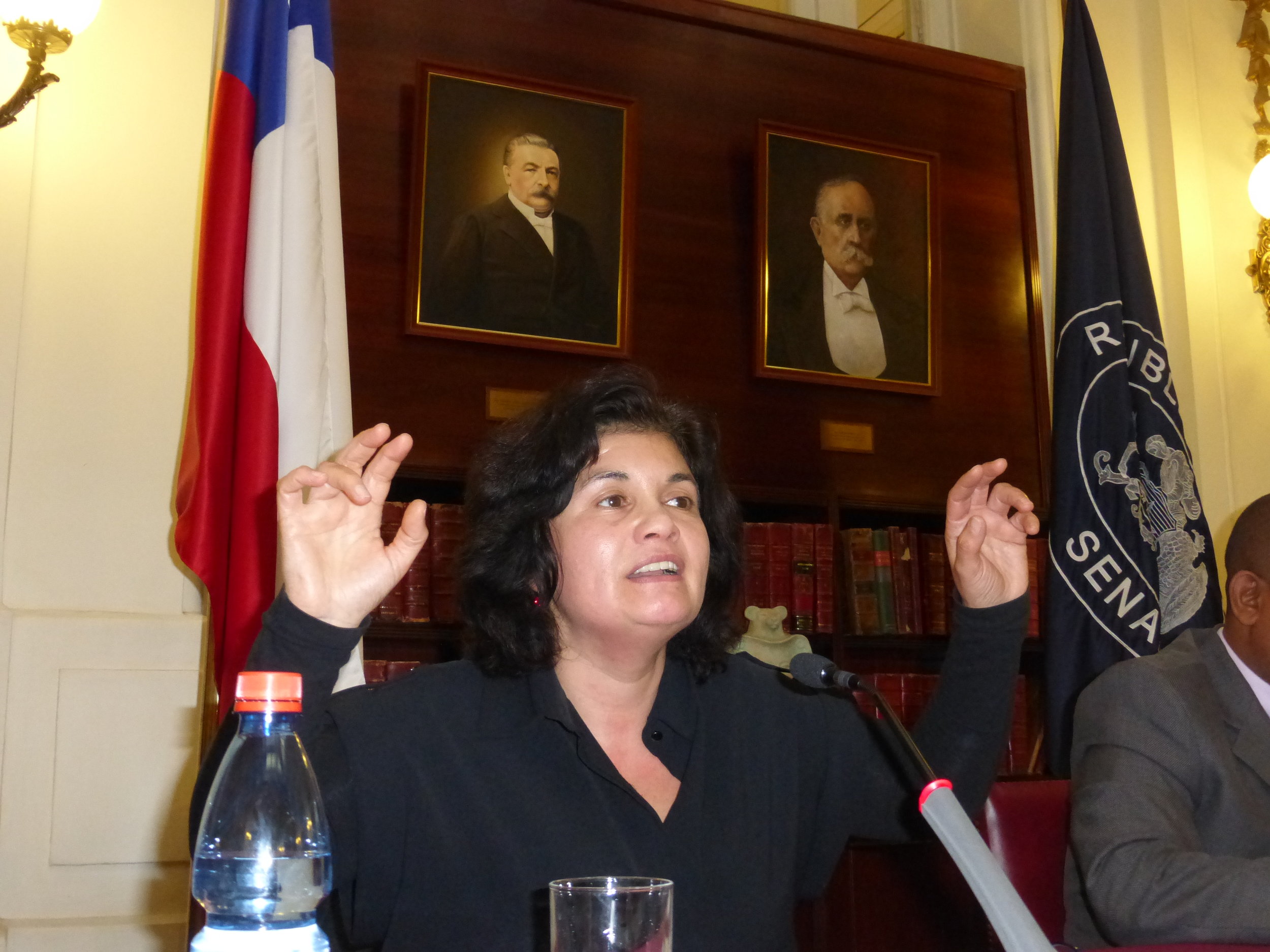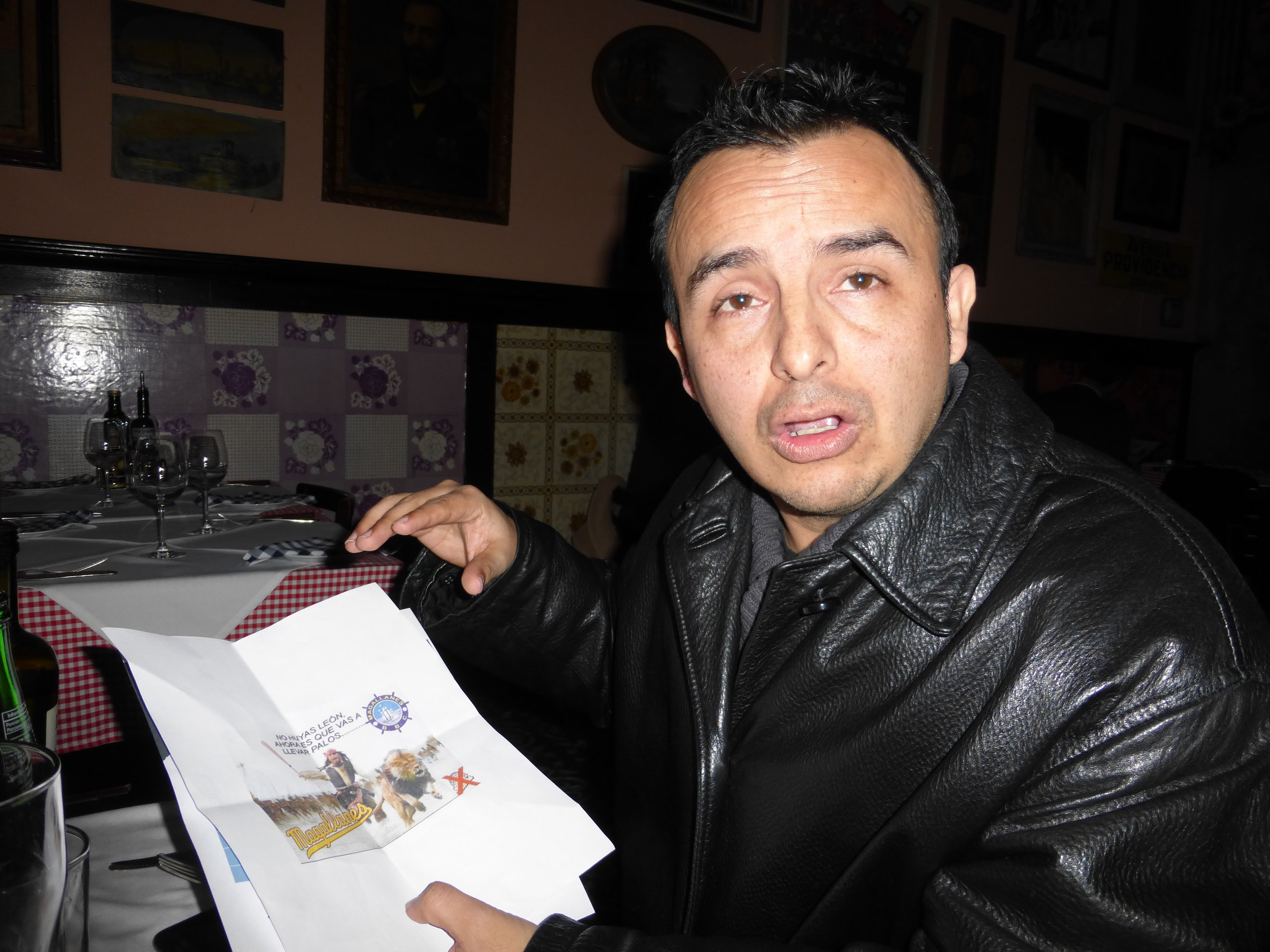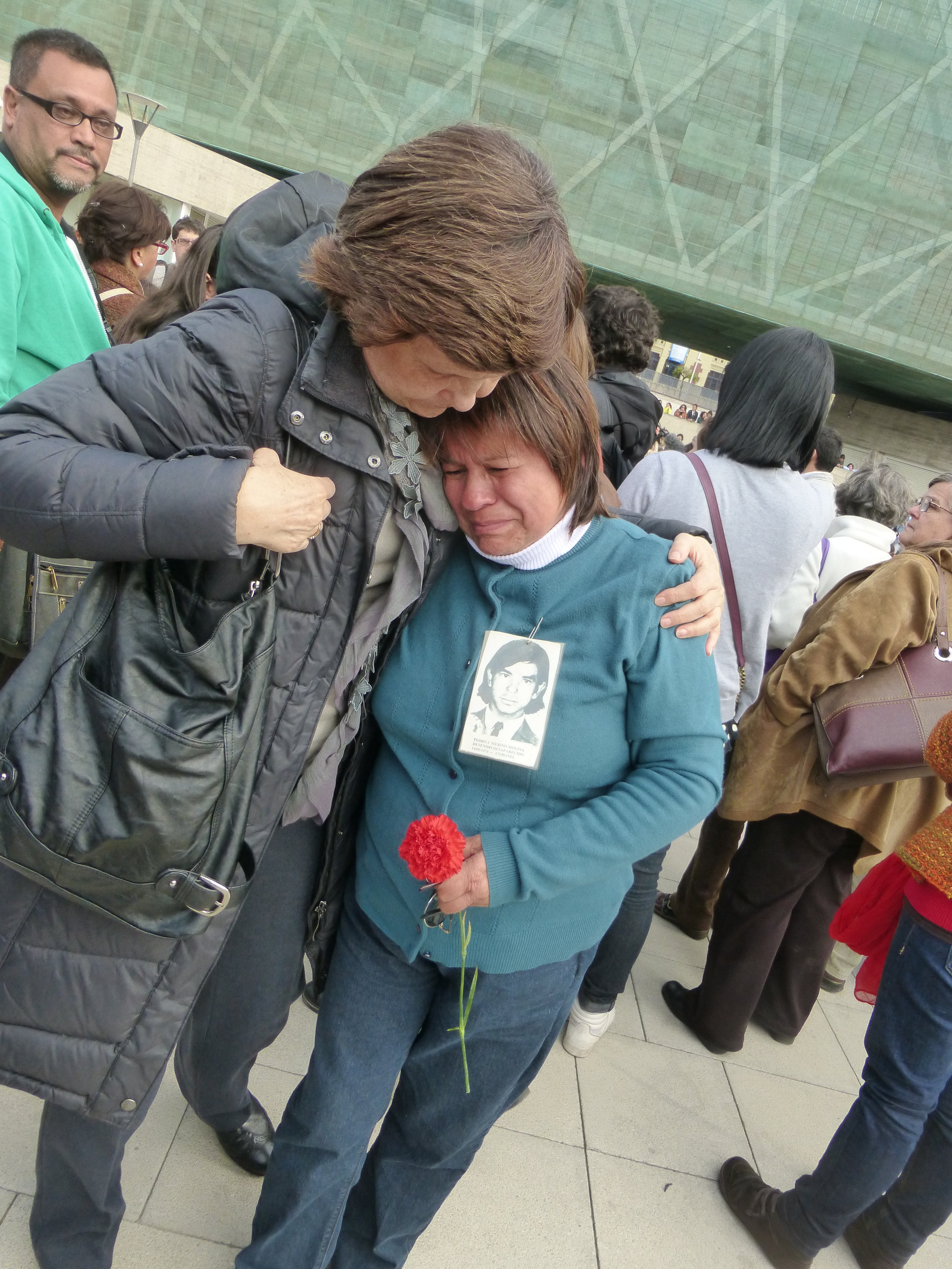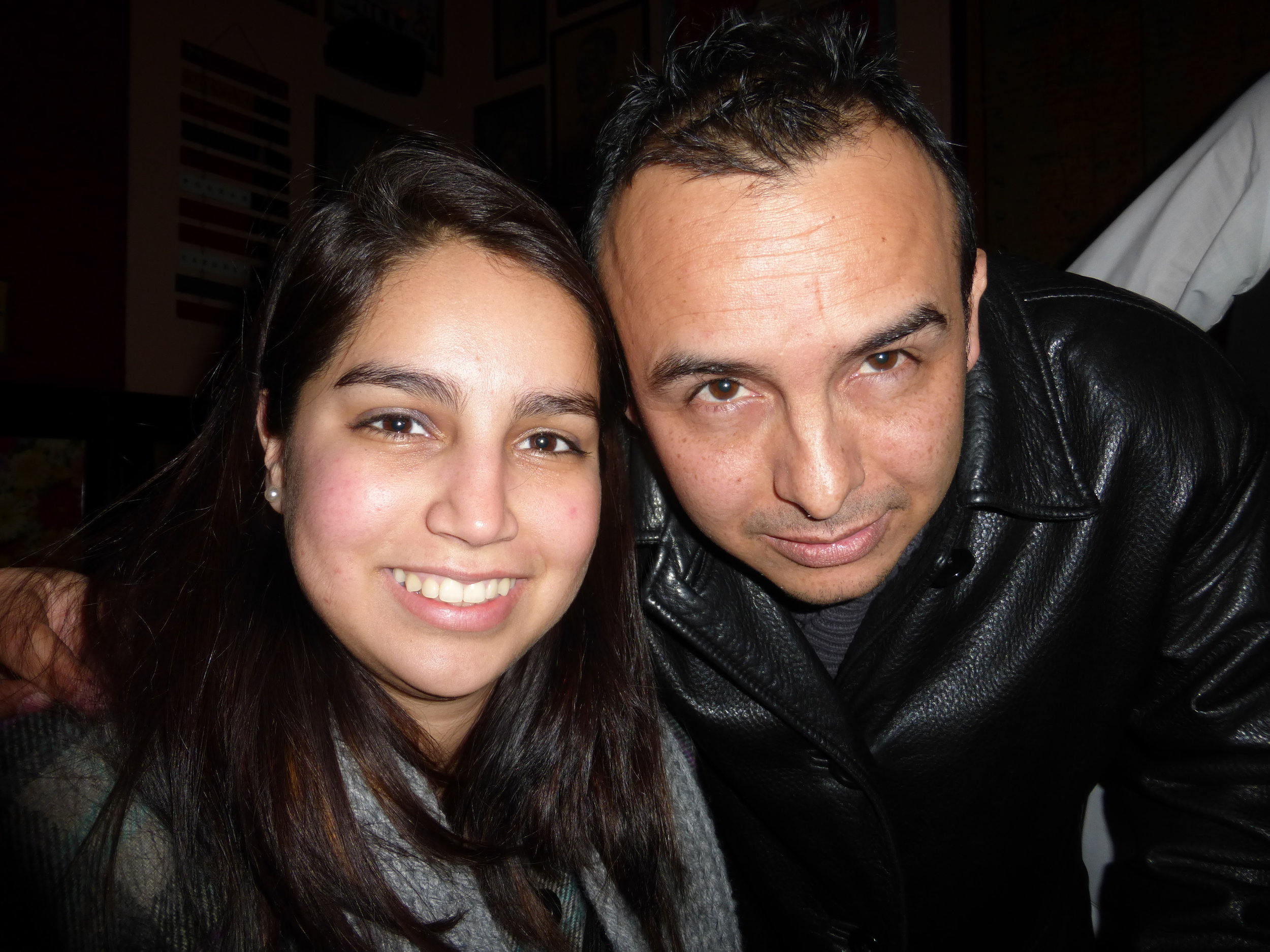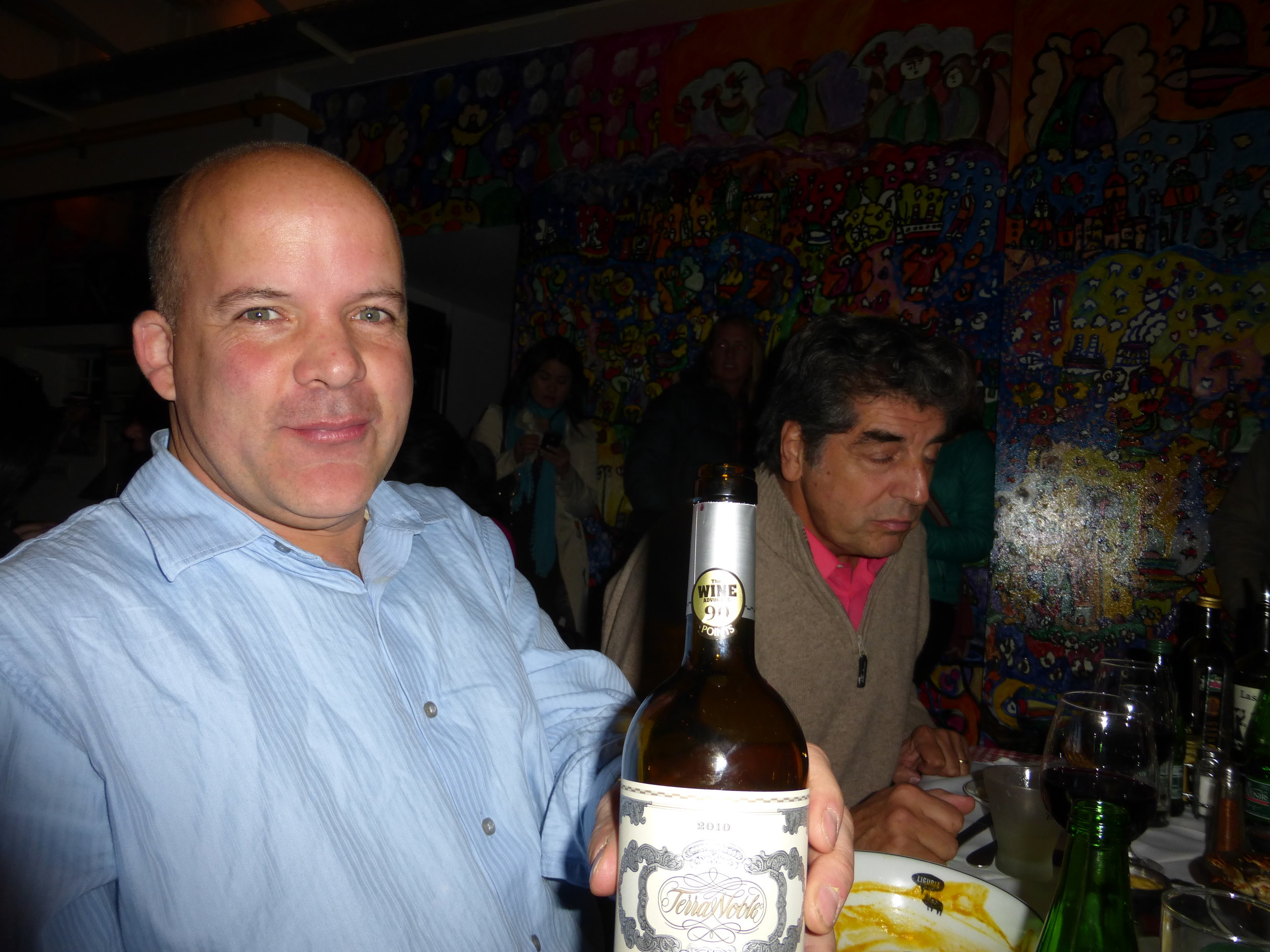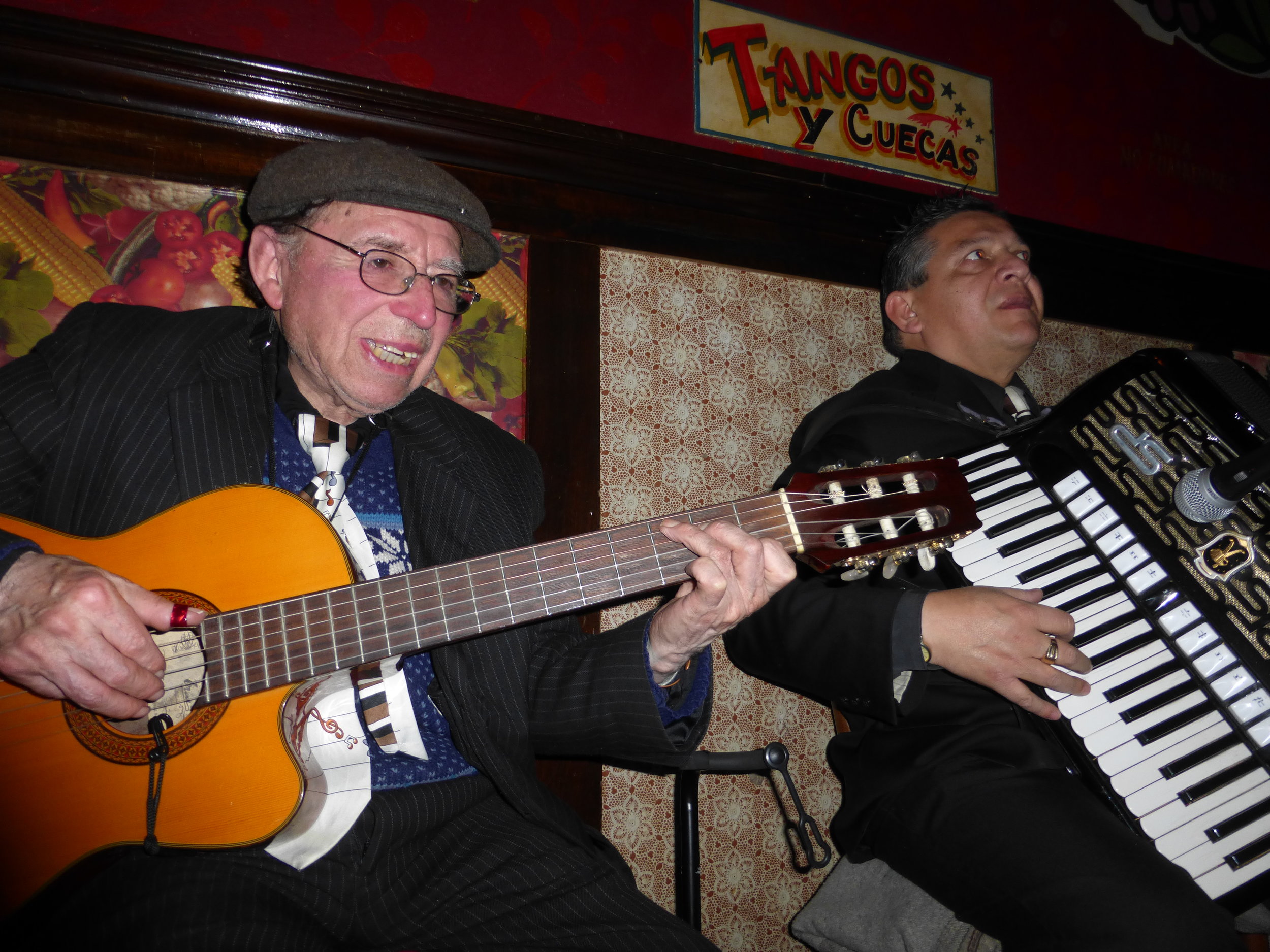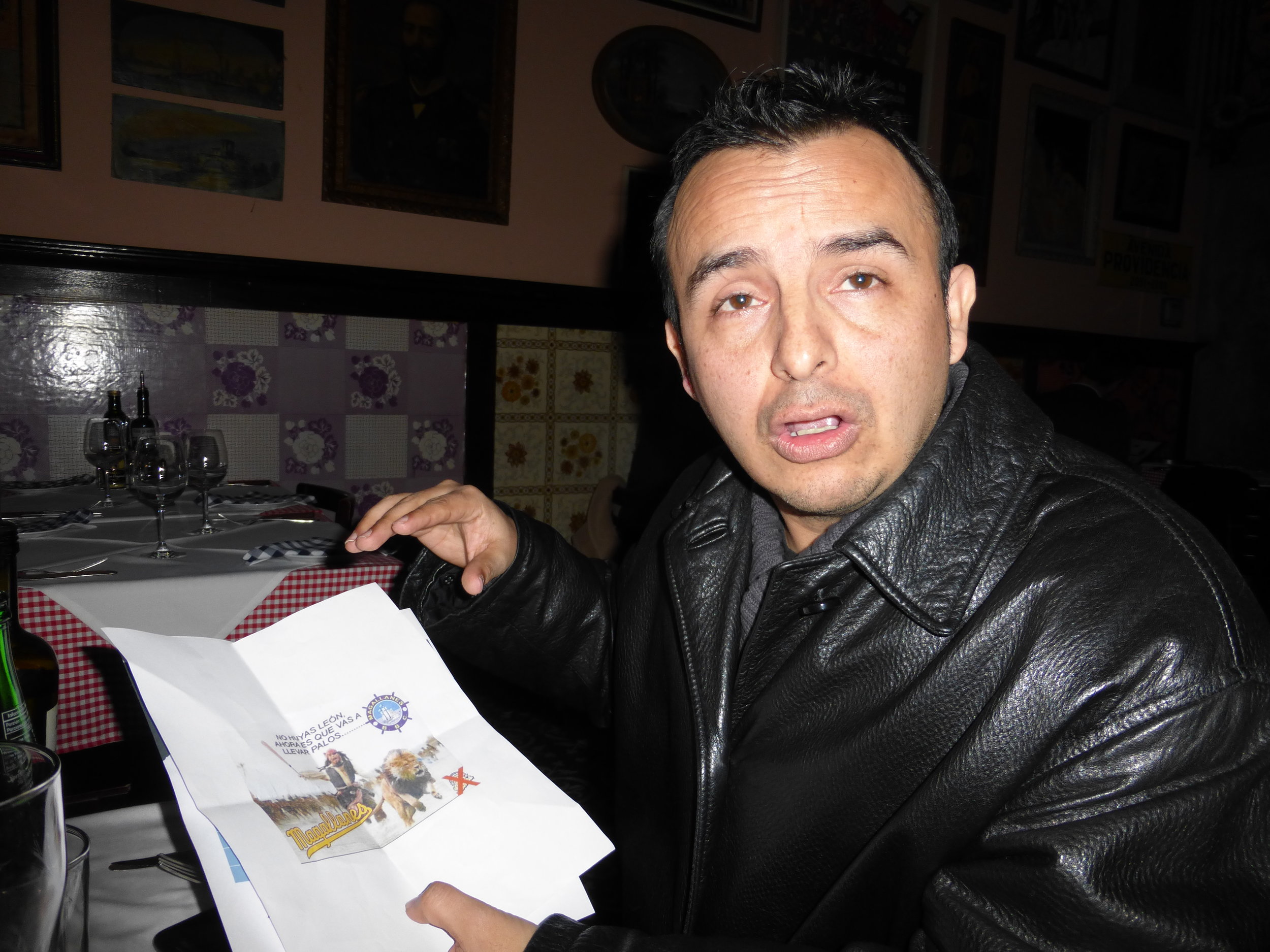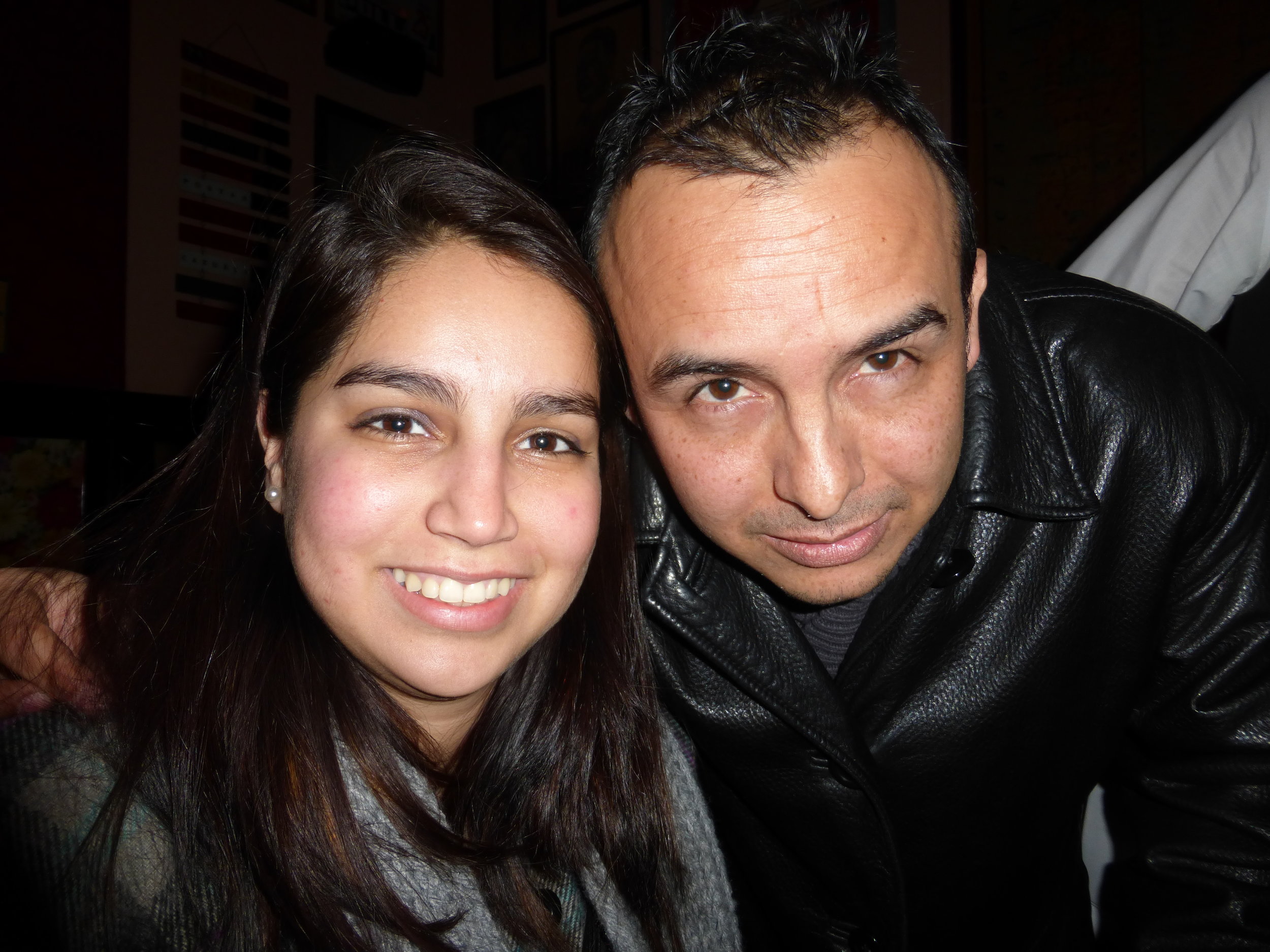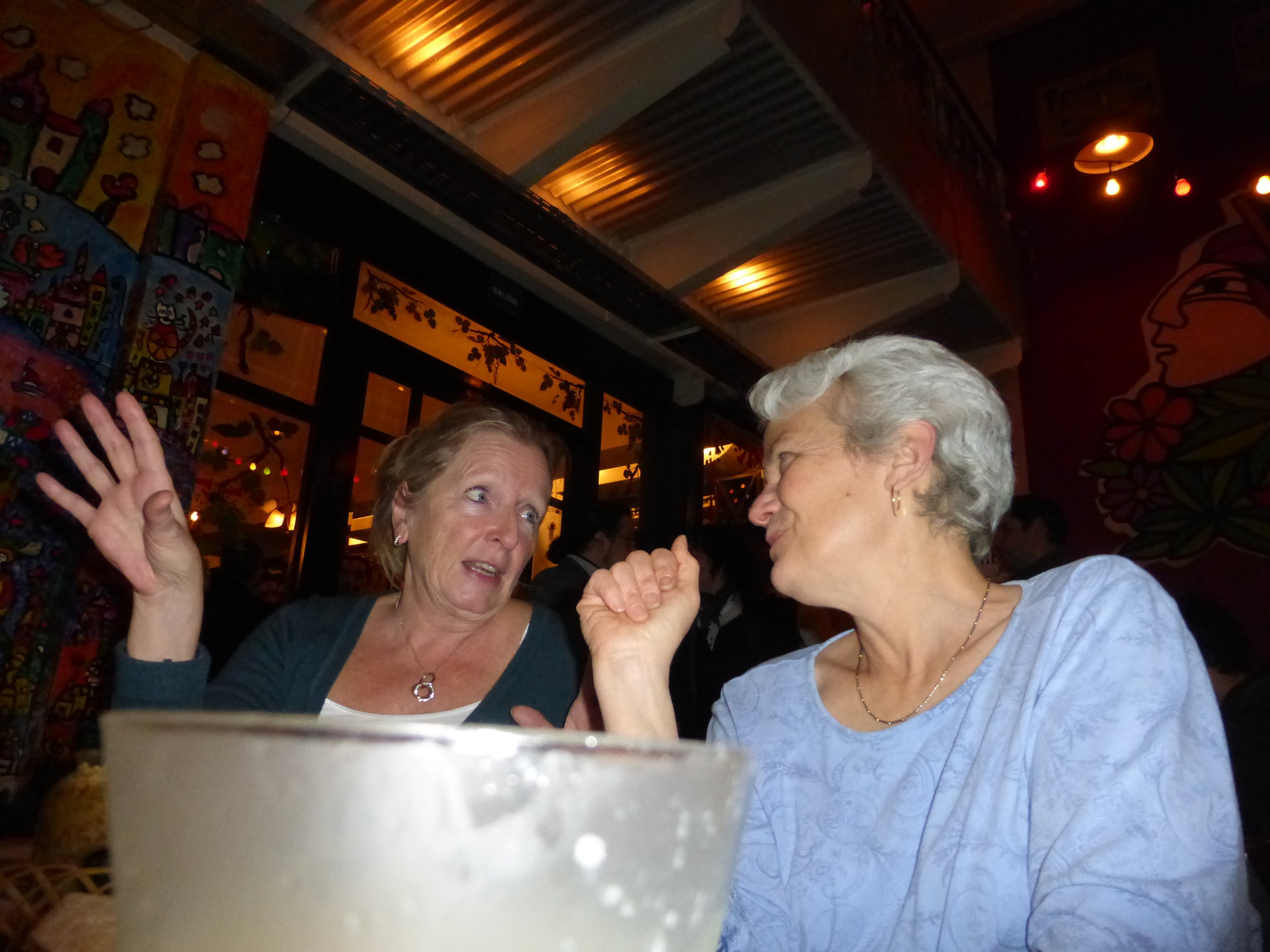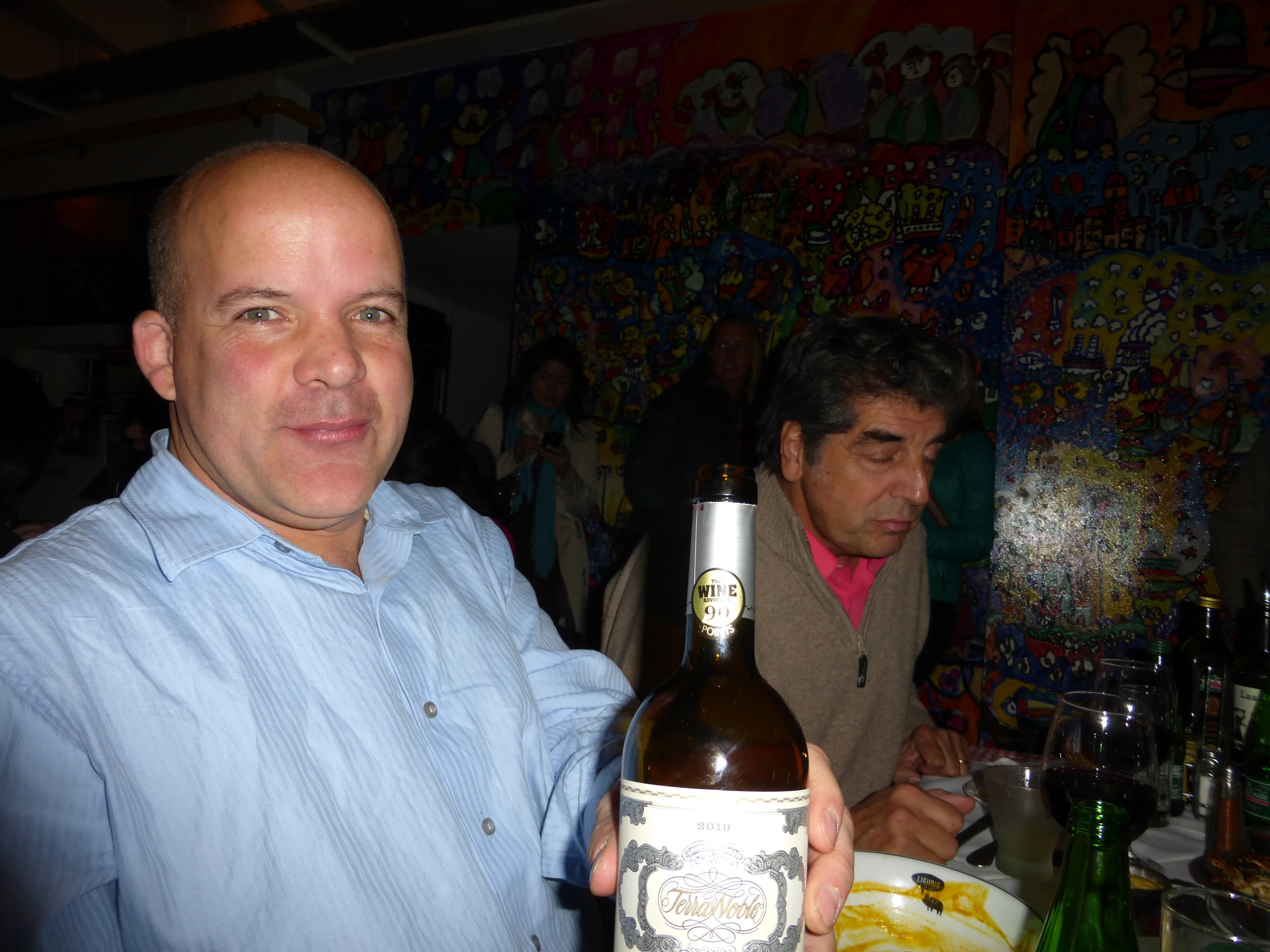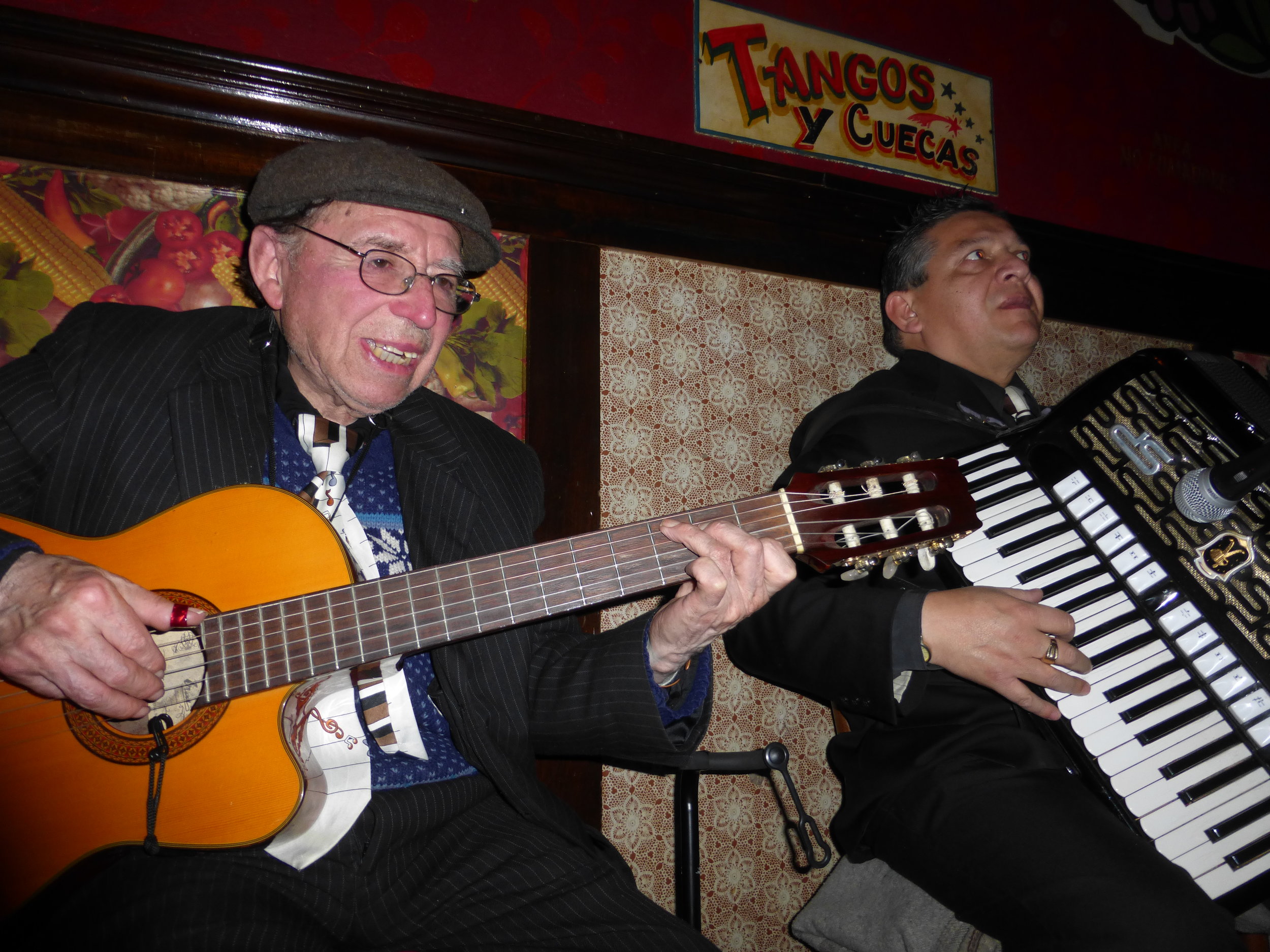The sausage sandwich I shared with Eduardo was an artery clogger. I really didn’t need the last pisco sour.
Or, for that matter, the white chocolate I shared with Dunreith.
But, man, what a night.
I wrote about two weeks ago about the community Dunreith and I had formed in the first two months here in Santiago.
Last night, at Bar Liguria, large swaths of the tapestry we’ve quilted came together at the Bar Liguria near Manuel Montt to eat, drink and enjoy each other’s company.
It was a combination of the old show, “This is Your Life,” with the Chinese food meals I used to organize in high school when I’d call up just about everybody I knew and invite them to join me at lunch. (In a dignity-saving measure, I’ve learned in the ensuing three decades that it’s not necessary for the event convener to stand and deliver an off-tune rendition of “C is for Cookie.”)
There were fellow Fulbrighters-this included Larry Geri and his lovely wife Rachel, who had just returned from Buenos Aires, and cyber-security expert Greg Gogolin and his daughter Erin, who’s made quantum leaps in her Spanish-speaking ability-as well as Matias Torres, the Chilean sponsor of Deb Westin, a third colleague and friend.
Sebastian Perez-Canto, who works with Miguel Paz and whom we met at the Data School event at the University of Diego Portales where my MacBookPro was stolen, drove in on his motorcyle for a brief chat.
Augmented reality ace Eduardo Riveros came.
So did Irene Helmke, a willowy Chilean-born journalist who speaks English, German and Spanish and whom I met at the conference for Latin American journalists at the old Chilean congress.
And Maca Rodriguez and Miguel Huerta, friends whom we met in Chicago at the home of Mark Hallett and Carmen Vidal-Hallett, were there, too.
Since we’ve arrived, Maca and Miguel have picked us up at the airport, lent us bicycles, taken us to dinner and connected Dunreith with a tutoring job that has been one of the highlights of her time here thus far.
Maca spoke to my students on the first day of class and helped several of them with their requests under the 2009 Transparency Law. She’s helped me craft my request, too. Miguel will be speaking to the students on one of the final classes.
In short, it was a group that included many, but not all, of the folks and groups we’ve met.
I’ve written before about Bar Liguria, a popular and relatively pricey watering hole that features waiters dressed in black pants and vests, potent drinks and a rumbling din that only grows louder as the evening progresses.
We assembled outside, then moved upstairs to the second floor, where the waiters combined about six smaller tables to form a long space where we all piled in, sat down, and started talking.
We covered a dizzying range of topics.
Larry and Rachel told us about their adventures in Buenos Aires, their struggles with mastering the tango during a class taught by an Argentine man and an exacting, female Romanian assistant.
Buenos Aires is enormous-it makes Santiago look like a small town, Rachel said- and pulsing with energy at all times of the day. The metro is as jammed at midday as it is during rush hour, they said.
Sebastian and I recounted the story of my computer theft, which was recorded by the University of Diego Portales’ security cameras.
The thief swiped the computer belonging to Miguel Paz, too.
He responded by posting the video on the web site of El Mostrador, a local news outlet.
[youtube=http://www.youtube.com/watch?v=pSv66NyY6SY&w=420&h=315] The video elicited a torrent of commentary, which divided evenly between those people who excoriated the robber as a series of unprintable words and those who used those same words for us for leaving the computers out to be taken.
Fortunately, our insurance policy covered the vast majority of the damage, so I ultimately lost a couple hundred dollars, some pictures and some writing that I hadn’t backed up in the cloud.
Eduardo, who has family roots in Venezuela and who lived there for a decade, returning only to Chile last year, was in the clouds about his recent presentation at an international digital journalism conference that took place the week before the anniversary of the Pinochet coup.
I didn’t attend that session because we were in a memory-related seminar, and Eduardo gave Dunreith and me a book about the coup.
He also shared how his father, a doctor who was educated in the Soviet Union, was nearly killed by the Pinochet regime.
At the end of the table, Matias, Miguel and Macarena talked about the impact of living under that kind of terror for years has had on the Chilean people.
Many Chileans coped by focusing only on their own immediate situation.
"If I have work, I’m all right," was a common attitude, they said.
Matias made the point that the Pinochet overthrow of democratically-elected Salvador Allende was only the most recent in a series of coups the country has seen.
We also had a humorous conversation about what Dunreith and I have experienced thus far of many Chilean’s attitude toward service.
It’s fair to say that the idea that the customer is always right has not taken hold.
Quite the opposite, in fact.
If you go to a restaurant here and ask for something that is listed on the menu, but has run out, in many cases, it’s too bad for you.
You should have gotten there sooner.
Want to divide a bill in three and pay with separate credit cards?
Forget about it.
And so on.
Miguel, Maca and Matias said that attitude of taking whatever is given to you is also a legacy of the dictatorship.
They explained that there’s an expression that means, “The old lady has already left.”
If you decide you want to change your order, it’s too late.
If you think about a new topic for a conversation on an ongoing project, the fact that you didn’t mention it the first time means that it’s out of bounds for consideration.
The legacy of the coup has been so profound that it made the recent eruption of memory building up to the fortieth anniversary of the coup so significant.
Matias said that even five years ago not everyone used the word “dictatorship” to describe the Pinochet regime.
Instead, many people said “military regime.”
For the first time in the nation’s history, people are sharing much more openly about what happened, he said.
We talked and talked and talked, and, eventually, it was time to leave.
We settled the bill, hugged everyone goodbye and rushed to Santa Isabel for Dunreith to buy her treasured white chocolate bar.
We floated up Providencia Avenue.
Dunreith persuaded the red-coated gentleman at the front door to let us into the shop, which was in the final stages of closing.
He relented when she said she would only get one item.
We bought the chocolate and a big plastic jug of water, and walked back to our home.
My head buzzed with all that had gone into it.
My heart was nearly bursting, too.
